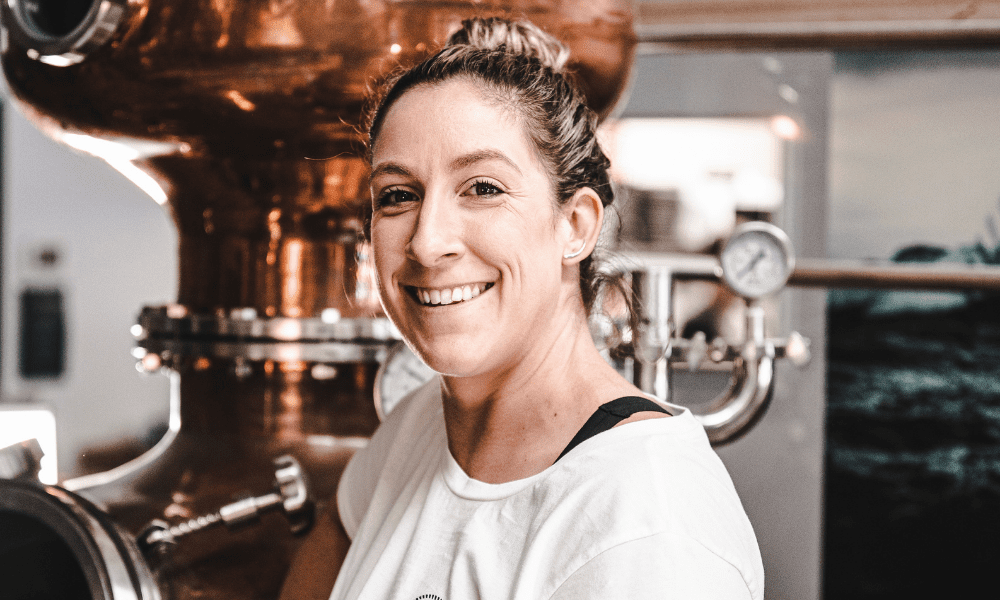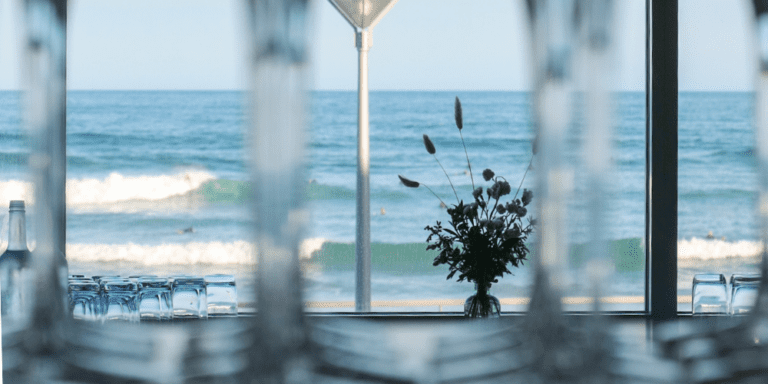Photography by Fold in the Map
Frankie McPhail begins by recounting the time she was sitting in a bar in Courtenay Place, going through a life crisis. Having moved to New Zealand from Canada to work for a retail clothing company, in 2015, she found herself with her contract ending and visa running out. “I asked myself, ‘If I could do anything in the world, what would it be?’ I looked at my glass and said, ‘F*** it, I’m going to make whisky.’”
McPhail has been a whisky lover for many years, but turning her passion into a career wasn’t easy. “I had no idea how to make whisky. I had failed math and science quite a bit. And I was assistant manager of a retail store, so I didn’t really have any money, either. So it wasn’t really in the cards or destiny for me to do it,” the 33-year-old says.
But as all the great romantics would know, if you love something enough, you’ll make it work. And with the help of her plumber fiancé, a fellow brewery friend and her family, McPhail opened her very own distillery in the heart of Wellington.
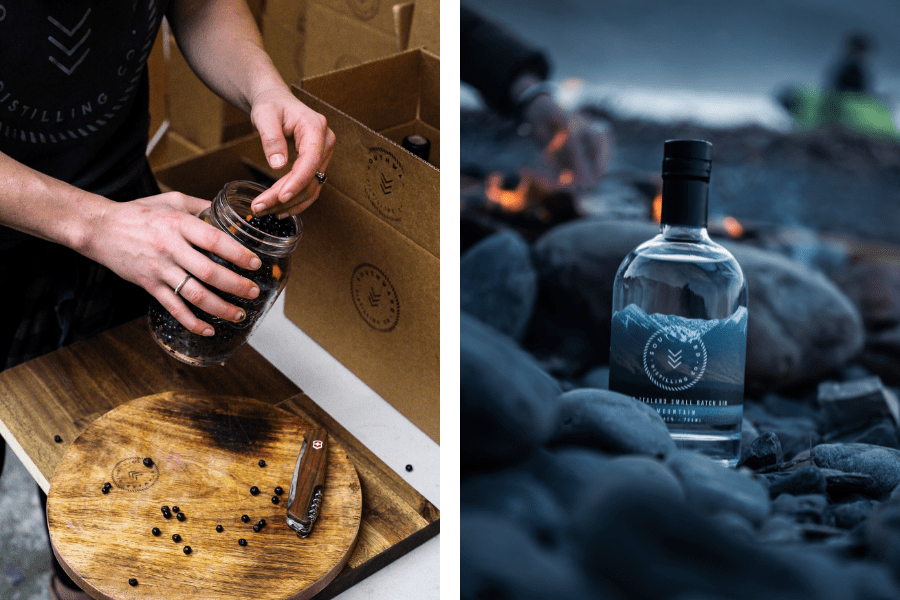
Inspired by her grandfather, a fishing boat engineer who she describes as a “big Croatian man who didn’t have all his fingers”, McPhail named Southward Distilling after his boat – an ode to his seafaring spirit and connection to nature. The 300-litre copper hybrid still that sits in Southward Distillery is lovingly named after her grandmother Kay, who supported McPhail in getting the business across the line in the beginning.
Talk to any whisky maker and you’ll learn that it’s a job that takes a lot of patience. It can take years and even decades to produce your first drop, which can prove challenging when you don’t have much start-up capital to see you through the years. And so, McPhail started Southward Distilling’s journey making gin.
A pioneering spirit
A whisky woman through-and-through, the idea of distilling a white spirit came with some reluctance, she admits, recalling a specific night crying in her living room to her fiancé, lamenting that she didn’t like gin and didn’t want to make it. “I very quickly realised in the scheme of the dream that you have to take certain routes that might not be expected,” she says. “It was a very pivotal moment for me, deciding, if I was going to do gin I was going to do it my way.”
She set about making gin the way a whisky-lover would, thinking: how would a traditional Scotch whisky drinker enjoy gin? What hasn’t been done in the gin industry that’s worth trying? “It’s about playing with flavour and palette. We might not like the London Dry gin; we might like something that’s a new world style – that’s bigger and bolder.”
Her naivety over gin and her love for whisky has led her to craft some unconventional varieties, including a smoked rosemary gin that tastes “like a roast lamb dinner”. “It pushes you far into that savoury, rough, almost rye whisky-like category. My fiancé thought I was crazy when I created it, but people really like it because when you pair it with ginger beer or ale, it connects to the New Zealand nostalgia of having roast lamb dinners, or rosemary in the garden. It ties into that subconscious way of tasting that if you’re familiar with it, your brain has already decided it’s open to it before it hits your lips.”
This way of weaving memories and stories around the spirits – and not solely describing them by flavour and profile – is a defining aspect of McPhail’s approach. “I’m steeped in story and nostalgia. Even the bottle shape that we have is tied to the whisky I was drinking when I decided I wanted to make whisky.”
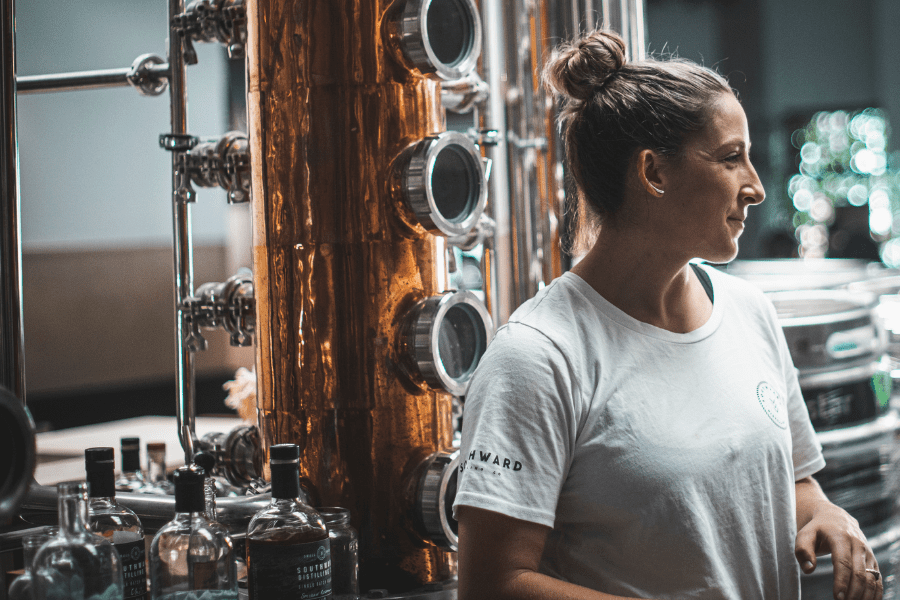
Mountains and waves serve as the inspiration behind the gins, the rugged peaks a link to her homeland in British Columbia and the landscape of New Zealand. The ocean connection is an ode to her grandfather and her life growing up on the Pacific Coast: seaweed is used as one of the botanicals in the Wave Gin, harvested nearby in Cape Palliser, adding a sweet dryness to the flavour profile.
While gin-making lets her be agile and experiment, whisky is, of course, her first love. Now two years into the business, McPhail is excited to have just begun making her first whisky. Diverting from the tradition of ageing whisky six to 12 years, hers will sit for two to three years in a method of short-ageing.
“It’s not necessarily that something aged for two or three years is bad,” she explains. “Getting it into the right cask, say a chardonnay or cognac, will give you a flavour that means you can release it in two to three years as a good drinking whisky. Especially because of the wine industry that we have in New Zealand, you can choose some really amazing things in the wood to get that flavour in it. And the grain that we have in New Zealand is so unique.
“We have an opportunity to learn from the brewing industry in terms of what they can do with beer, learn from the wine industry in terms of what casks they have, and create something that’s really unique to this part of the world.”
It seems archaic, for sure, to describe gin as feminine and whisky as masculine. McPhail agrees that it shouldn’t be reduced to a male versus female thing, but does acknowledge that women aren’t as prevalent in distilling as men, a disparity that translates to the way it is marketed. A 2020 study by global movement OurWhisky that looked at the Instagram accounts of major whisky brands found that posts featuring men outnumbered women by 228 per cent. “There is that real tradition of older gentlemen drinking rough single malt, smoky Scotch. It’s been done that way time and time again.”
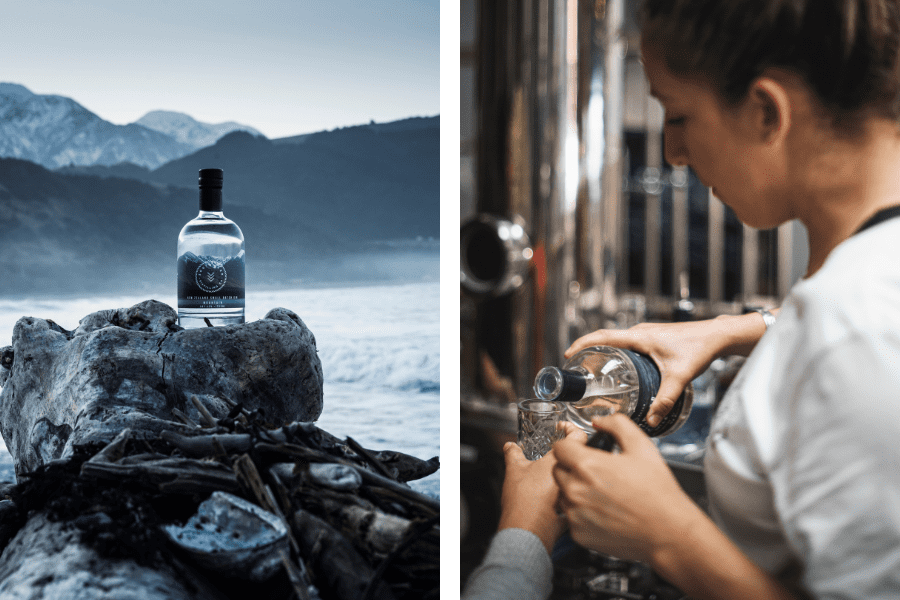
Her approach isn’t about disregarding tradition, but finding ways to make it unique and push it forward. “If we were to make whisky for the next thousand years like we have for the last thousand, for sure that would be great. But what opportunities lie in playing with different casks or changing things up? What rules am I breaking and why am I breaking them? I’ve got one shot to create my legacy and so creating whisky that respects but innovates tradition is how I operate.”
As to the future, McPhail says the dream is to build a distillery out in the wild on the Wellington coast. Southward is still young so the dream is a few years away, but she’s happy to spend the time getting there. “It sounds cheesy, but I feel like it’s what I’m born to do. Liquor evolves and develops as time goes on, and this is my legacy. To be able to harness the environment and story and get to live my dream every day is pretty special.”
Frankie’s must-try bars in Wellington
NIGHTFLOWER
“Bespoke cocktails to your taste and preference. These guys have a stunning bar and have our gin as their house pour. The experience at Nightflower is like no other and my personal favourite.”
HAWTHORNE
“Tucked away on Tory Street up a flight of stairs, Hawthorne is a cozy lounge that can shake or stir up some amazing concoctions and build them to suit or with a twist. I highly suggest sitting at the bar or by the fire and ordering a Martinez or a Manhattan.”
HANGING DITCH AND GOLDINGS FREE DIVE
“Even though we make gin you can’t go wrong with a good beer. While Hanging Ditch takes care of the laneway cocktails with bottles hanging above their heads, their neighbour Goldings is the perfect hideaway. I highly recommend going off menu and ordering a Southside from Hanging Ditch. The atmosphere alone is worth it.”


